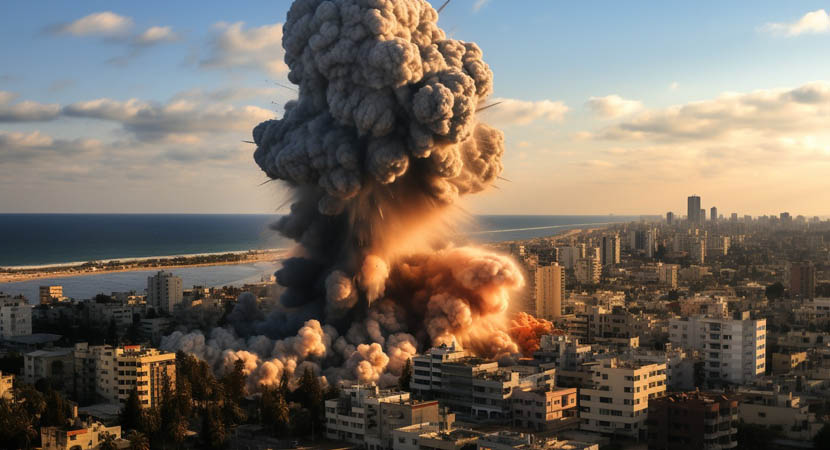Friday, December 1, 2023

The conflict between Israel and Hamas has dealt a severe blow to regional tourism, with tourists shying away from the Middle East and posing a threat to the economies of nations like Jordan, Lebanon, and Egypt, heavily reliant on international tourism.
Petra, a renowned tourist destination in the Jordanian desert, witnessed a significant decline in visitors, with tour guide Amer Nezami noting a drop in numbers, especially in combo tour trips that encompass Jordan, the West Bank, and Israel. Major hotels in Petra reported a 25 to 50 percent decrease in reservations, highlighting the impact of the conflict on the tourism sector.
The outbreak of hostilities on October 7, initiated by Hamas militants breaching Gaza’s border into Israel, has resulted in significant casualties and escalating tensions. Israel’s response, involving an air and ground military campaign, has led to a substantial loss of lives, with the conflict affecting both Israeli and Palestinian territories.
The aftermath of the conflict has taken a toll on travel demand to Israel, causing a ripple effect on neighboring destinations in the Middle East. Countries in the region are experiencing a notable decrease in new bookings, and some tourists are diverting from traditional destinations like Turkey and Egypt to Southern European countries such as Spain, Greece, and Portugal.
The duration of the conflict will be crucial in determining its impact on regional tourism. S&P Global Ratings predicts that Lebanon, Jordan, and Egypt will be most affected, with tourism contributing significantly to their foreign receipts. Several tour agencies in Egypt have reported widespread cancellations, particularly from European travelers. Airlines have suspended flights to Lebanon due to heightened tensions in the region.
While S&P does not foresee a substantial decline in tourism to Turkey, the overall impact on the broader region depends on the conflict’s duration and whether it extends beyond the current scope. Suleiman Farajat from the Jordanian Prime Minister’s office suggests that if the conflict persists, the upcoming tourism season could be in jeopardy.
However, if resolved soon, a return to normalcy is anticipated by September 2024. The conflict’s repercussions underscore the vulnerability of regional tourism to geopolitical tensions and conflicts.
Input: AFP and
Sunday, April 28, 2024
Sunday, April 28, 2024
Sunday, April 28, 2024